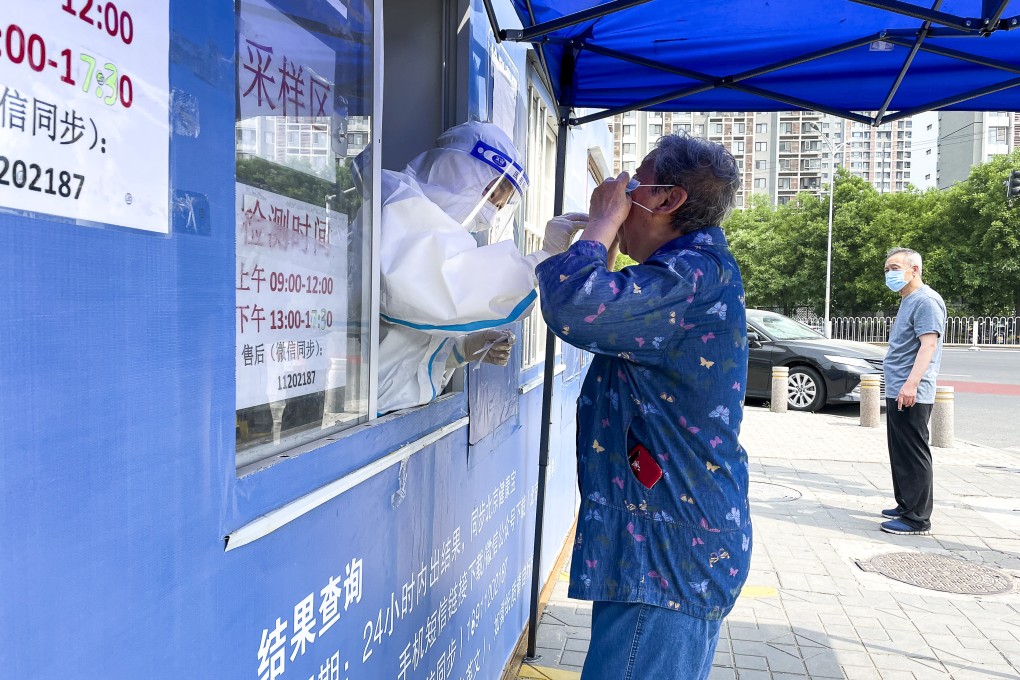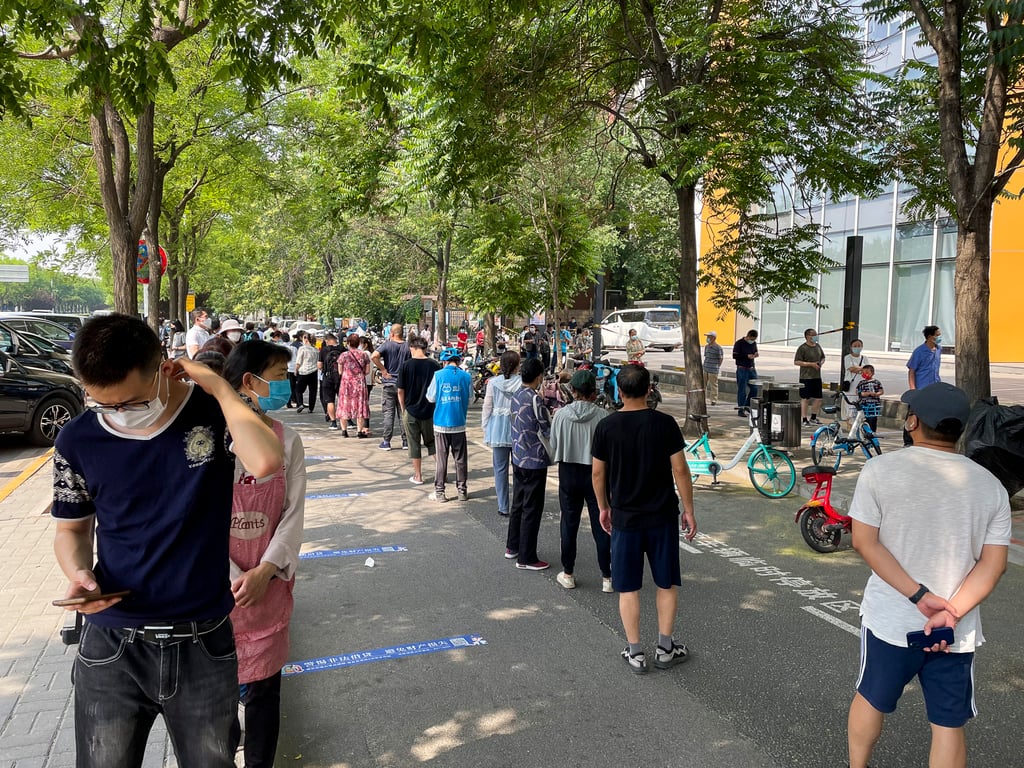China’s online maps dotted with Covid-testing booths as testing becomes routine under zero-Covid strategy
- Online map services of Alibaba, Baidu and Tencent now contain the locations of Covid-19 testing booths in major cities such as Shenzhen
- The Chinese government has been heavily reliant on digital screening and tracking since 2020 to control the transmission of the coronavirus

Chinese cities have added the locations of tens of thousands of Covid-19 testing booths to online maps, as taking nucleic-acid tests has become a daily routine for citizens under the country’s “dynamic zero Covid” strategy.
AutoNavi, an online map service owned by Alibaba Group Holding – parent company of the South China Morning Post, said last week it had collected data from local health authorities in more than 350 cities and updated its app with information on testing booths. Users can find their nearest booths by typing “nucleic acid” in the search box.
Other popular operators of online maps, including Baidu and Tencent Holdings, have also rolled out similar functions in cities such as Shenzhen and Hangzhou in recent weeks.

Following recent outbreaks in Shenzhen and Shanghai, China has been tightening control measures across the country. Nucleic-acid testing and the checking of health codes have become part of daily life, as they are now a requirement for attending schools, going to work, and travelling around.
Henan in central China, one of the country’s most populous provinces, said last week it would mandate all residents to do a polymerase-chain-reaction (PCR) test every 48 hours. Residents who fail to do so will receive a yellow code on their health-tracking app, barring them from entering public venues and taking public transport, the local government said.